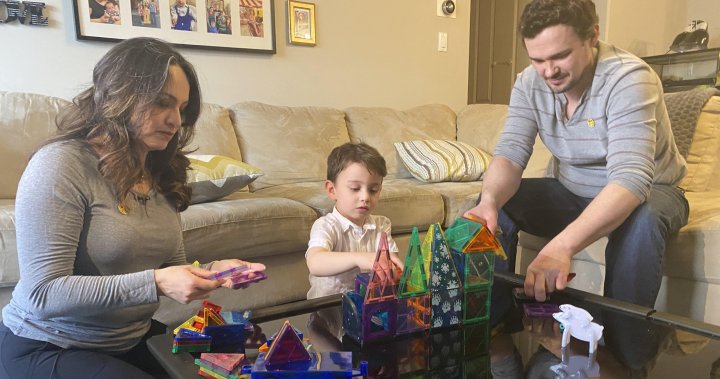After being diagnosed with ACA SCID at just 10 days old, Jakob Guziak has spent more than four years living in a bubble due to the absence of his immune system. His family has kept interactions extremely limited in order to protect him, and he has been receiving monthly plasma transfusions to give him a partial immune system. Without early intervention, children with this condition typically do not live past the age of two. However, Jakob’s family is hopeful as they prepare to participate in a stem cell treatment trial at UCLA in California. This treatment involves transforming Jakob’s cells with a virus and then reinserting them into his body after chemotherapy, with the goal of transforming his bone marrow and strengthening his immune system.
The upcoming treatment in California offers the family a new beginning, with the hope of a normal life for Jakob. This potential transformation provides them with optimism for the future, as they begin to think about sending Jakob to school and allowing him to experience everyday childhood activities without the constant fear of illness. While Jakob will always be considered a transplant patient and may face some lifelong complications, the need for frequent immunoglobin treatments will hopefully be eliminated. The family acknowledges that this treatment opens up new possibilities that were previously out of reach.
In addition to focusing on Jakob’s recovery, the family is also advocating for other parents of children with rare conditions. They have partnered with RareKids-CAN to share their story and raise awareness, not only among the general public but also within the research community. By sharing their experiences and challenges, the family hopes to encourage the development of more accessible gene therapy treatments in Canada. They emphasize the importance of family involvement in clinical trial and research platforms to provide a comprehensive perspective and address the barriers faced by families seeking treatments outside of their home country.
As the family plans for Jakob’s future, they are grateful for the support they have received and acknowledge their privilege in being able to pursue treatment in California. They express a desire for all families facing similar challenges to have access to life-saving therapies, such as gene therapy. Despite the complexities of their journey, the family remains hopeful that advancements in medical research will make such treatments more widely available. Their experience has highlighted the need for improved access to innovative treatments and the importance of advocating for those who are navigating rare medical conditions.
Looking ahead, the family is preparing for a new chapter in their lives, filled with opportunities that were once unimaginable. They are excited about the prospect of Jakob attending school, making new friends, and reconnecting with family members whom he has been unable to meet thus far. Through gratitude and a positive outlook, the family remains resilient and appreciative of the progress they have made. Jakob’s journey serves as a reminder of the strength and resilience of families facing rare medical conditions, as they navigate challenges and seek out innovative treatments to improve the quality of life for their loved ones.


